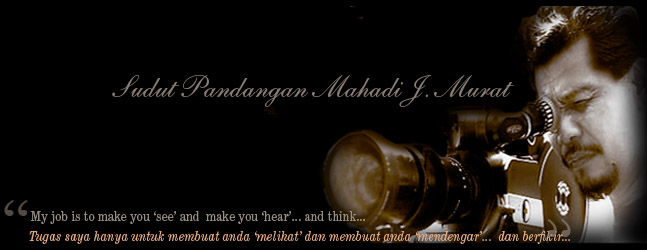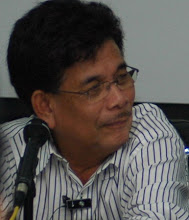THE MEDIA on May 18 quoted the MCA president, Dr Chua Soi Lek, as saying that the Chinese community is no longer concerned with bread and butter issues, but with “intellectual” issues such as fair implementation of policies.
The Malaysian Insider news portal headlined it “Soi Lek says Chinese drawn to fair policies, not largesse.” Largesse is defined as (1) generous giving, as from a patron, (2) a gift or gifts given in a generous, or sometimes showy or patronizing, way and (3) nobility of spirit.
From the outset, I agree with him on the part about fair implementation of policies. Had government policies been implemented fairly and effectively, there would not have been the gaping income gaps among the races, states and regions.
The Bumiputeras would have achieved their modest 30-per cent wealth ownership target and our society would have been more equal and egalitarian. The top 20 per cent would not continue to suck up the wealth.
Unfortunately, the opposite might be the case. Poverty is creeping back and the income gaps among the races have widened. Official statistics that accompanied the launching of the New Economic Model, show that 60 per cent of households earn below RM3,000 a month, and 80 per cent of them are Bumiputera households.
Thanks to their stronger economic position at the outset of the NEP and their monopoly of the economic supply chain, the Chinese were able to beat all the targets set for them but the Bumiputeras and the Indians lag behind.
While the Bumiputeras and the poor Chinese and Indians benefited modestly from official largesse, the Chinese mercantile and professional classes benefited more substantially.
With one stroke of a pen by the Finance Minister allowing football betting, tycoon Vincent Tan is richer by RM525 million richer. His Ascot Sports sold 70 per cent of the business to his corporate vehicle, Berjaya Group. If that’s not gargantuan largesse, I don’t know what.
The Chinese enjoyed official largesse by way of large monopolies, concessions, contracts and subsidies – anything from sugar monopoly to large timber concessions, gaming franchises, IPP licences, massive contracts and billion ringgit worth of direct and indirect subsidies.
In fact, official largesse not only helped to prosper the well-connected Malay-, Chinese- and Indian-controlled conglomerates, but also in some instances saved them from bankruptcies.
The YLT official website tells of the company nearly going bankrupt in the 1970s, forcing family members to chip in to rescue it. By the 1980s, the YTL Group took off on a grand scale on account of large government contracts to build schools and modular hospitals and later on privatisation of railway land and the award of the first Independent Power Producer (IPP) licence.
Vincent Tan’s Berjaya Group took off when it was awarded the privatisation of Sports Toto in the 1980s while Ananda Krishnan became an overnight sensation when he was awarded the super-lucrative privatisation of the Jalan Ampang Race Course and a series of gaming and telecommunications franchises plus considerable seed capital from state-owned funds.
He is survivor, always enjoying the patronage of powerful Malay political figures. Today he is a master market maker known for taking his prized assets private only to re-quote them at handsome premiums.
It’s fine with me if the new MCA under Dr Chua no longer wants the bread and butter type largesse for the Chinese, but is instead more concerned with intellectual matters such as good governance, accessibility to education, scholarships, promotions, the judiciary and crime.
If I can speak for the Malays, the Orang Asli and other Bumiputeras, I think we too are concerned about good governance. Without good governance, the poor are more likely to be marginalised because they cannot afford to give fat ang pau, duit kopi, sponsorships and cuti-cuti to the ruling elite.
The Malays, the Orang Asli and other Bumiputeras too want accessibility to education and scholarships, not only to attend public universities, but also to enroll in private universities and colleges.
The Malays, the Orang Asli and other Bumiputeras too want better promotion opportunities in the Chinese- and Indian-controlled conglomerates, especially those that enjoy massive government largesse apart from the GLCs.
The Malays, the Orang Asli and other Bumiputeras too want an independent judiciary and a reduction in crime because they too want justice and they too are victims of rising crime rates.
The MCA cannot pull the wool over people’s eyes by blaming its declining support among the Chinese to the implementation of government policies. The MCA is part and parcel of the policies and their implementation. The MCA should instead thank the government and claim the credit that the NEP had given the Chinese a much larger slice of the expanded cake than the Bumiputeras and the Indians.
Also, it is not as if whenever or wherever the MIC is in the driving seats, things are better. The Port Klang Free Zone fiasco is a case in point.
And in Sarawak, where the BN had just been ousted from the Sibu parliamentary seat by the DAP on account of Chinese support, who benefited from the massive timber concessions and infrastructure contracts if not a handful of Chinese tycoons?
The Star newspaper in a report on last March 27 listed them as Tiong Hiew King, Ting Pek Khiing, the Lau brothers (Henry Lau Lee Kong, Stephen Lau Lee Kiong and Vincent Lau Lee Ming), Hii Yii Chiong, Ding Jack Sung, Ling Chiong Ho, Wong Kie Nai, and Yaw Teck Seng. It labeled them the “Sarawak Shakers”.
The MCA, especially its new President, cannot continue to pin the blame for the party’s poor rating among the Chinese on others. More so when the few seats it won in the 2008 general elections were mostly on account of Malay votes.
I am all for the MCA being concerned with intellectual issues so that the party will be better able to relate to the everyday things like morality, infidelity, the evil of gambling and alcoholism, the along menace, prostitution, human trafficking, illegal wildlife trade, drug trade, profiteering and many more issues plaguing our multi-religious and multi-racial society.
(Oleh Datuk A Kadir Jasin, petikan - kadirjasin.blogspot.com)
Tuesday 25 May 2010
MCA: Between Largesse And Being Intellectual
Posted by MAHADI J MURAT at Tuesday, May 25, 2010 1 comments
Monday 17 May 2010
Kempen BN membawa persepsi salah, dan kalah
SEPOTONG ayat penting yang pernah terhambur dari molot Dato' Seri Dr Chua Soi Lek, presiden MCA sekarang mengenai politik, ialah "Politics is about making perception" atau "politik ialah tentang membina persepsi".
Saya sangat percaya itu, kerana politik itu sebenar benarnya benar tidak benar, sebaik-baiknya baik tidak baik. Yang utama bagi politik ialah apa yang orang fikir. Jadi kebolehan membina persepsi ialah kebolehan membina tanggapan atau sudut fikir pengundi (dan orang ramai) adalah faktornya.
Lihatlah bagaimana Soi Lek membina dan menterbalikkan persepsi dirinya dari seorang yang telah tercalar oleh kelakuan sumbang di masa lalu, kini diberi kepercayaan memimpin partinya. Orang-orang yang "bersih" yang bersaing dengannya tetapi gagal membina persepsi yang baik telah ditewaskannya. Beliau telah berjaya merubah persepsi ahli MCA terhadap dirinya; dari negatif kepada positif.
Persoalan Inilah rasanya sebab kekalahan BN kepada DAP dalam pilihanraya kecil Sibu, kelmarin, dimana persepsi negatif terhadap BN begitu ketara di mata pengundi. Mungkin.
Persepsi orang ramai khususnya pengundi majoriti - masyarakat cina di Sibu terhadap BN umumnya adalah negatif bila dilihat rekod perkhidmatan ahli parlimen BN di Sibu di masa lalu (setelah lima penggal tidak dapat menyelesaikan banyak masalah utama masyarakat), ditambah dengan persepsi negatif kepimpinan kerajaan negeri dengan wajah-wajah lama yang luntur dan tidak dapat dipercayai lagi.
Kedatangan pemimpin-pemimpin kanan BN dengan pelbagai habuan, peruntukan dan janji kebaikan bernilai berjuta-juta ringgit dalam tempuh masa lapan hari walaupun baik tetapi ini juga turut membina persepsi tentang budaya negatif amalan BN yang digunakan sebagai senjata oleh DAP.
Kenyataan Lim Kit Siang selepas penamaan calon tempuh hari yang menyebut "kemenangan bagi DAP adalah mustahil" sebenarnya mengukuhkan persepsi negatif bagi BN dan positif bagi DAP. Komen Kit Siang selepas kemenangan "a historic victory" secara tidak langsung juga memberi kredit kepada penyokong dan pengundinya, dan ini sangat positif kesannya kepada mereka.
Kenyataan Lim Kit Siang selepas penamaan calon tempuh hari yang menyebut "kemenangan bagi DAP adalah mustahil" sebenarnya mengukuhkan persepsi negatif bagi BN dan positif bagi DAP. Komen Kit Siang selepas kemenangan "a historic victory" secara tidak langsung juga memberi kredit kepada penyokong dan pengundinya, dan ini sangat positif kesannya kepada mereka.
Masyarakat dan pengundi hari ini adalah gulungan baru yang berpengetahuan dan bermaklumat, mempunyai idealisme diri dan keinginan baru yang berbeza. Mereka tidak boleh dilayan dan diber perhatian cara lama khususnya dengan memberi habuan dengan tiba-tiba, berlebihan dan di luar jangka, sedangkan dalam tempuh yang panjang mereka tidak dipedulikan. Nampak sangatlah kerja memujuk oleh orang bersalah yang amat lawak tingkahnya. Gulongan pengundi zaman kini tidak mudah termakan pujukan cara ini.
Berubahlah seluruhnya cara kita mendekati dan memahami masyarakat. Cara, kaedah , strategi dan budaya yang boleh membina persepsi baru perlu dicari dan digunakan sementara masih ada waktu, walaupun sebahagian besar rakyat merasakan apa pun yang berlaku mereka masih mahu mencuba sebuah kerajaan alternatif sebagai permulaan wujudnya pilihan di masa akan datang
Posted by MAHADI J MURAT at Monday, May 17, 2010 0 comments
Subscribe to:
Posts (Atom)


